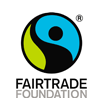UCA was founded in 1992 by members of 11 village co-operatives.
About UCA San Juan
UCA San Juan is a co-operative union with members spanning five communities in the districts of San Juan del Rio Coco and Telpaneca in the Madriz department of northwest Nicaragua. Known as UCA or UCA San Juan, its full name is Unión de Cooperativas Agropecuarias San Juan del Rio Coco.
Background and structure
UCA was certified organic in 1993 and Fairtrade certified in 2004. Today it has a membership of eight co-operatives and 430 individual farmers of which a quarter (106) are women. It also employs 18 permanent field, processing and office staff.
Members grow high quality coffee – 75 per cent certified organic – on small farms of 5.6 hectares on average. UCA processes, markets and exports their coffee along with smaller amounts purchased from other local growers. In 2011/12 UCA produced and sold 35,200 quintals (1,620 tonnes) of coffee, of which 22.5 per cent was sold to Fairtrade buyers.
The biggest threat facing farmers is la roya – or leaf rust – a fungal disease that kills coffee trees and is affecting 70% of farms. The co-operative is supplying farmers with chemicals to combat the disease and distributing 140,000 new saplings.
Fairtrade
The partnership with Fairtrade has enabled UCA to participate in many trade fairs such as the annual Specialty Coffee Association of America event in the US. They have also participated in European business tours accompanied by Fairtrade partners to meet buyers from Austria and Switzerland which have helped to increase sales.
The requirement to meet Fairtrade Standards and embrace Fairtrade principles has acted as an impetus for UCA to improve its internal structures. Member co-ops have put in place functioning management committees and opened bank accounts to manage Fairtrade Premium receipts, enabling them to improve financial management, open savings accounts and plan ahead.
Fairtrade Premium projects
For Fairtrade sales, UCA San Juan receives at least the Fairtrade Minimum Price of US$1.40 a pound, or the market price if higher. There is an additional premium of 30 cents a pound for certified organic coffee. This year UCA reported that it earned an extra $50 per quintal for Fairtrade sales compared to conventional market sales. And Fairtrade provides a stable income in a market where world coffee prices have fallen almost 60 per cent in the last two years because demand has lagged behind supply.
Fairtrade buyers are increasing their purchases every year. Sales are up from 5,300 quintals in 2004/05 to 7,950 quintals in 2011/12 and account for around 20 per cent of total sales. While conventional buyers only buy and sell coffee, UCA is developing deeper relationships with Fairtrade buyers like Bettys and Taylors, for instance, who are keen to contribute to social development and are helping to fund health and children’s education projects.
UCA also receives the additional Fairtrade Premium of 20 cents a pound to invest in business development and improvements in the five communities they serve. A quarter of the premium must be invested in productivity and quality improvement, which is essential to increase incomes and improve competitiveness with other coffees grown in the region.
Many farmers have invested the Premium in pulping machines, used for wet processing their coffee on the farm. Ripe red coffee cherries are soaked in water to soften the hard outer pulp which is then removed by electrically-powered pulping machines. The coffee beans are removed then collected by the co-op for drying, further processing, sorting and packing ready for export.
UCA previously contracted other companies to process and export its coffee but Fairtrade has enabled it to export directly. UCA has just constructed a drying mill, part-funded by the premium which is also being used to pay back the loan needed to build it. This has reduced the cost of processing by almost half and will generate additional income by contracting services to external clients. The mill also serves as collateral for the organisation to obtain finance.
The biggest threat facing farmers is la roya, or leaf rust, a fungal disease that kills coffee trees and is affecting up to 70% of farms. UCA is supplying farmers with chemicals to combat the disease and distributing 140,000 new saplings from its plant nursery to renovate farms. For the future, premium funds will be used to help farmers diversify production into cocoa and honey, possibly, to provide more sustainable livelihoods and reduce their dependency on coffee.
Other Premium projects
- Construction of a pre-school in a remote community where the local government school had insufficient classrooms; provision of school equipment and uniforms
- The school is also used two days a week to train young people in farming techniques and how to diversify into other agricultural crops and products
- New UCA office premises and small office for each co-operative, part-funded by premium
- 50% of the premium is used for cash payments for farmers who must submit an investment plan
